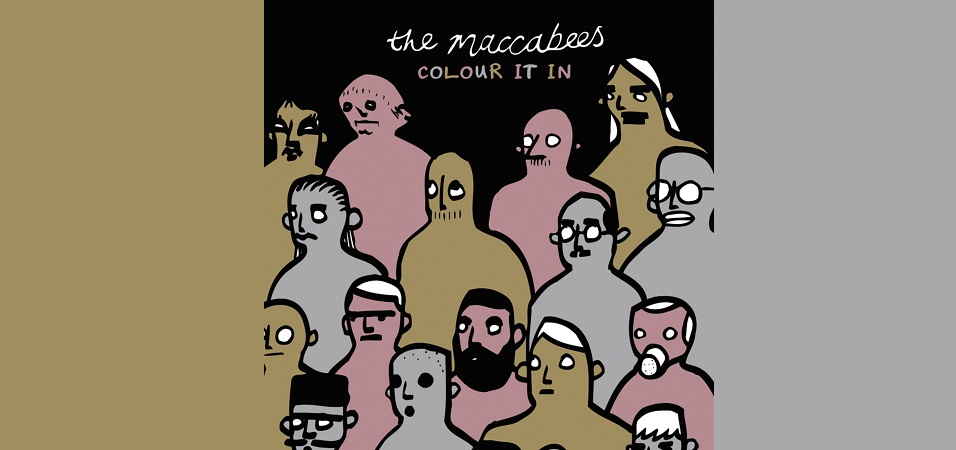Record Rewind: Muse – Absolution
3 min read
Maybe it was the eclipse, or maybe it was the ticking over into an entirely new era, but sometime around the turn of the millennia, the British band Muse had an epiphany. First emerging as Radiohead-lite hopefuls, the trio – comprised of Matt Bellamy, Chris Wolstenholme and Dominic Howard – recouped back into their chrysalis of melody to probe the inner echelons of their imaginations (no doubt, with the help of a cheeky mushroom or three), only to re-emerge as a completely different beast. Their second album Origin Of Symmetry debuted Muse Mark 2.0, however it was with their third album, 2004’s Absolution, that really set the band in stone as truly original.
 From the doom laden opening of Apocalypse Please to the sombre close to Ruled By Secrecy, you would be forgiven for considering Muse pompous, for that is exactly what they are. Pompous, overblown and over-sensational, and they are all the better for it. When their rock contemporaries of the early noughties shunned spectacle (think The Libertines, The Strokes, The Cribs, Bloc Party), Muse embraced it with bombastic delight. Whilst their debut album Showbiz was positively shy in comparison to their later efforts, and with Origin Of Symmetry being an – at times – almost grating explosion of creativity, Absolution refined everything that was superior about Origin and honed it into an almost conceptual body of work. Within were the first instances of of what would prove to become staples in Muse’s aesthetic; lyrical conspiracies and political paranoia, lavish orchestral arrangements and rock symphonies and underneath it all, a foreboding tone of disillusionment and dystopia. It was not your typical chart-topping album.
From the doom laden opening of Apocalypse Please to the sombre close to Ruled By Secrecy, you would be forgiven for considering Muse pompous, for that is exactly what they are. Pompous, overblown and over-sensational, and they are all the better for it. When their rock contemporaries of the early noughties shunned spectacle (think The Libertines, The Strokes, The Cribs, Bloc Party), Muse embraced it with bombastic delight. Whilst their debut album Showbiz was positively shy in comparison to their later efforts, and with Origin Of Symmetry being an – at times – almost grating explosion of creativity, Absolution refined everything that was superior about Origin and honed it into an almost conceptual body of work. Within were the first instances of of what would prove to become staples in Muse’s aesthetic; lyrical conspiracies and political paranoia, lavish orchestral arrangements and rock symphonies and underneath it all, a foreboding tone of disillusionment and dystopia. It was not your typical chart-topping album.
Absolution could be considered Muse’s darkest effort, both in sound and content. It is largely devoid of the electronic elements that largely permeated their later three albums, Black Holes And Revelations, The Resistance and The 2nd Law, instead favouring heavy, damning guitars, opposingly squealing riffs, thumping drums and Bellamy’s squawking vocals, it is here that the band truly began to personify themselves. If you were ever inclined to initiate a Muse-virgin, you would hand over Absolution. Now over a decade since it was released, in hindsight, Absolution succeeds on two levels: the first, the tracks that people who have never even heard of Muse know; the massive singles, the hitmakers and the setlist staples. In this arena we have the quirky and iconic Time Is Running Out, with its alluringly seductive fingerclicks foreshadowing the rollicking chorus to come, the austere lullaby Sing For Absolution, and then the mammoth, turbo-charged Hysteria.There are however, a plethora of unsung jems to pluck from the band’s orchard here; Howard gives his drumkit one very impressive pummelling in Stockholm Syndrome, whereas The Small Print and Thoughts Of A Dying Atheist are both riotous. This is juxtaposed entirely with the haunting and subtle Endlessly and Falling Away With You, a song which is perhaps the closest the band have ever come to a love song.
Most telling however, is the elaborate centrepiece of Absolution – Butterflies and Hurricanes, as this song alone – once again in hindsight – signalled the beginning of the end for what can be considered ‘heavy’ Muse. The grandiose splendour that is concocted by the first minute of the track explodes into a typically soaring Bellamy-esque chorus, one where the overlooking spectre of Freddie Mercury is clearly visible, however it is the ridiculously opulent third trimester that truly seals the band’s fate; the orchestra kick in, the melodrama builds, only to suddenly abate into an elaborate piano instrumental, a false sense of calm before the musical maelstrom is – once again – suddenly released like a tsunami to which the listener is floored, and left with their ears ringing. It is with this sudden silence that the underlying message is comprehended; for all the frustration, dystopian futures and political abjection, Muse are still looking upward, with the lyrics of Matt Bellamy marking the clarion call in a decorated science fiction narrative:
‘You’ve got to change the world and use this chance to be heard’.
::: covering reviews and interviews for the latest music releases on RenownedForSound.com


